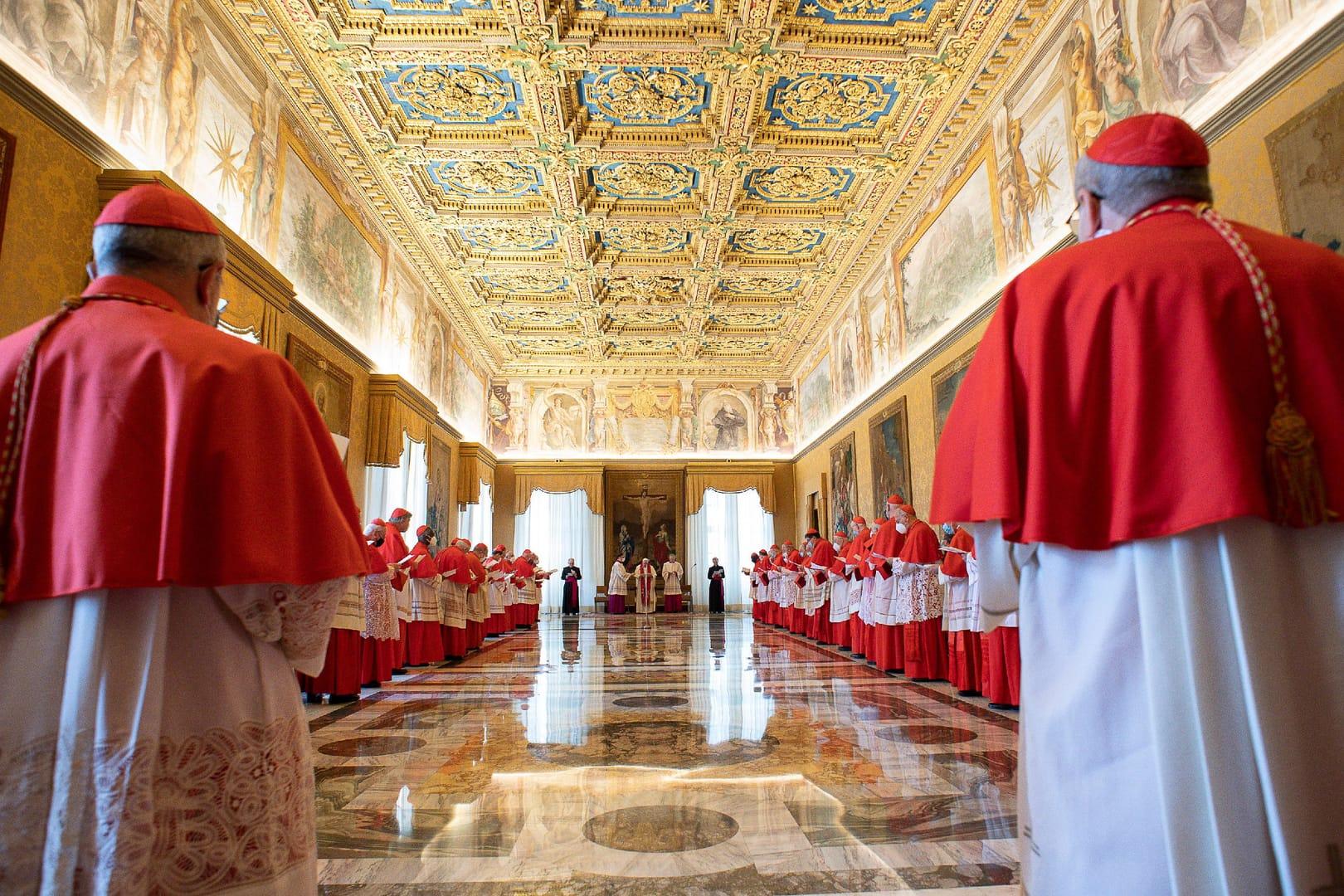ROME – Pope Francis announced Sunday that he will create 21 new cardinals Aug. 27, including Bishop Robert W. McElroy of San Diego, long seen as one of his key allies in the United States.
Also on the list is Nigerian Bishop Peter Ebere Okpaleke, appointed to Ahiara by Pope Benedict XVI in 2012. A group of the diocese’s priests and laity rejected him because he came from a different diocese, which led to a years-long standoff that prevented him from being installed.
Okpaleke was installed April 29, 2019, as the bishop of the new Ekwulobia diocese, after renouncing his appointment to Ahiara in 2018, in an effort to resolve the situation.
The other prelates hail from France, Brazil, India, Mongolia, Paraguay, Nigeria, Timor Oriental, and Italy, upholding the pontiff’s tradition of focusing on the peripheries when adding to the college of cardinals.
All the cardinals of the world are set to be in Rome for the occasion. They will already be there for an Aug. 29-30 session to reflect on the new Vatican’s constitution that goes in effect June 6. This will be Pope Francis’s eighth consistory for the creation of new cardinals.
Of the new crop of cardinals, 16 will be able to participate in the conclave that will eventually choose Pope Francis’s successor. The other five are over the age of 80 making the title mostly an honorary one.
Three of the new cardinals come from the Roman curia, meaning the Catholic Church’s central government: Arthur Roche, prefect of the Congregation for Divine Worship and the Discipline of the Sacraments; Lazzaro You Heung sik, Prefect for the Congregation for Clergy; and Fernando Vergez Alzaga, who runs the Vatican city state.
The other prelates under the age of 80 are:
- Archbishop Jean-Marc Aveline, of Marseille (France).
- Archbishop Peter Okpaleke, of Ekwulobia (Nigeria).
- Archbishop Leonardo Ulrich Steiner, of Manaus (Brazil).
- Archbishop Filipe Neri António Sebastião of Rosário Ferrão, of Goa e Damão (India).
- Bishop Robert Walter McElroy, of San Diego (U.S.A.).
- Archbishop Virgilio Do Carmo Da Silva, of Dili (East Timor).
- Bishop Oscar Cantoni, of Como (Italy).
- Archbishop Anthony Poola, of Hyderabad (India).
- Archbishop Paulo Cezar Costa,, of Brasília (Brazil).
- Bishop Richard Kuuia Baawobr M. Afr, of Wa (Ghana).
- Archbishop William Goh Seng Chye, of Singapore (Singapore).
- Archbishop Adalberto Martínez Flores, of Asunción (Paraguay).
- Archbishop Giorgio Marengo, Prefect of Ulaanbaatar (Mongolia).
The five who are over the age of 80 are:
- Archbishop Jorge Enrique Jiménez Carvajal – Archbishop Emeritus of Cartagena (Colombia).
- Archbishop Lucas Van Looy sdb – Archbishop Emeritus of Ghent (Belgium).
- Archbishop Arrigo Miglio – Archbishop Emeritus of Cagliari (Italy).
- Father Gianfranco Ghirlanda sj. – Professor of Theology.
- Monsignor Fortunato Frezza, canon of St. Peter’s.
When a pope creates new cardinals, he’s not only choosing the person who might be his eventual successor; the “red hats,” as they’re often called due to the color of their zucchetto, or skullcap, also serve as key papal advisers, with those under 80 quickly being appointed as members of Vatican offices and councils.
The selection also says a lot about the path a pontiff wants the church to take.
In the “Francis era,” many new cardinals come from far-flung, often overlooked dioceses where Catholics are a distinct minority. In the case of Mongolia, for instance, there are about 1,400 Catholics in the central Asian country that hosts eight parishes.
Poola, from India, comes from the Dalits, were formerly known as “Untouchables,” the lowest level on the Hindu caste system. In India, it is common for caste discrimination to exist even in non-Hindu religions, including Christianity.
Follow Inés San Martín on Twitter: @inesanma











